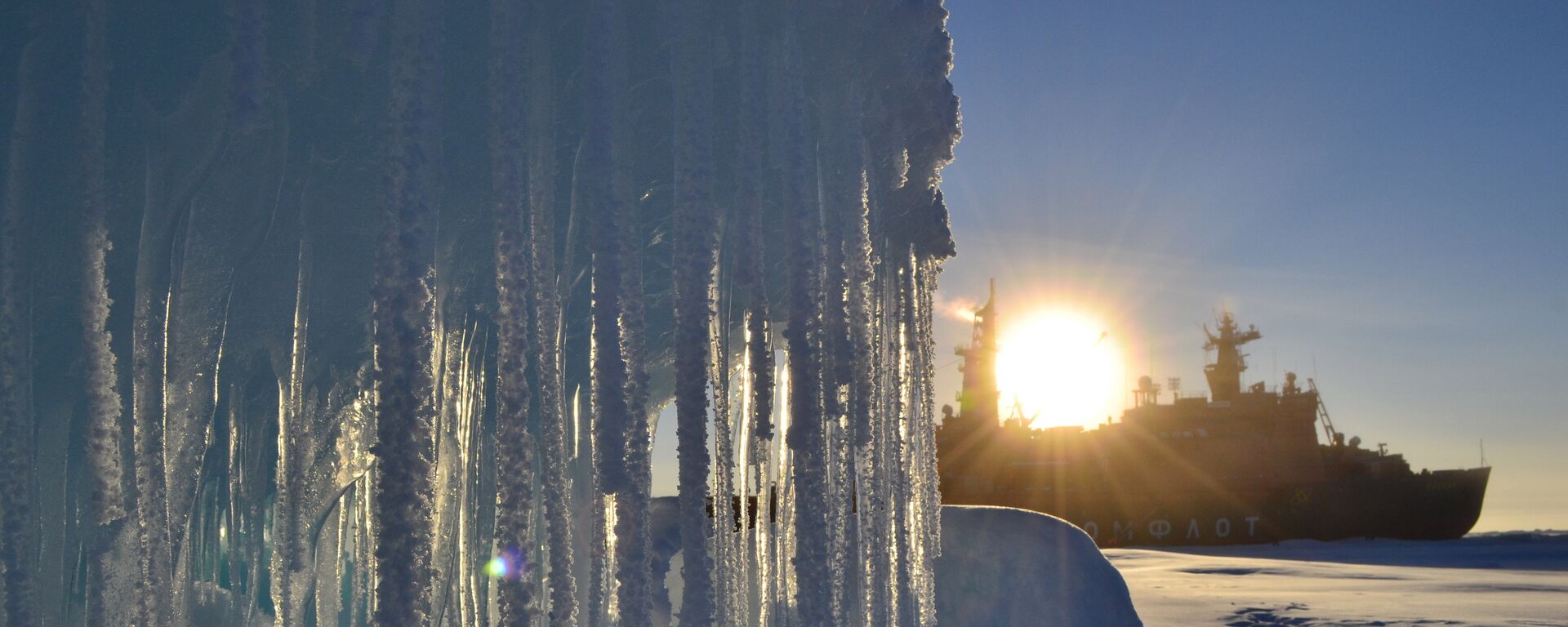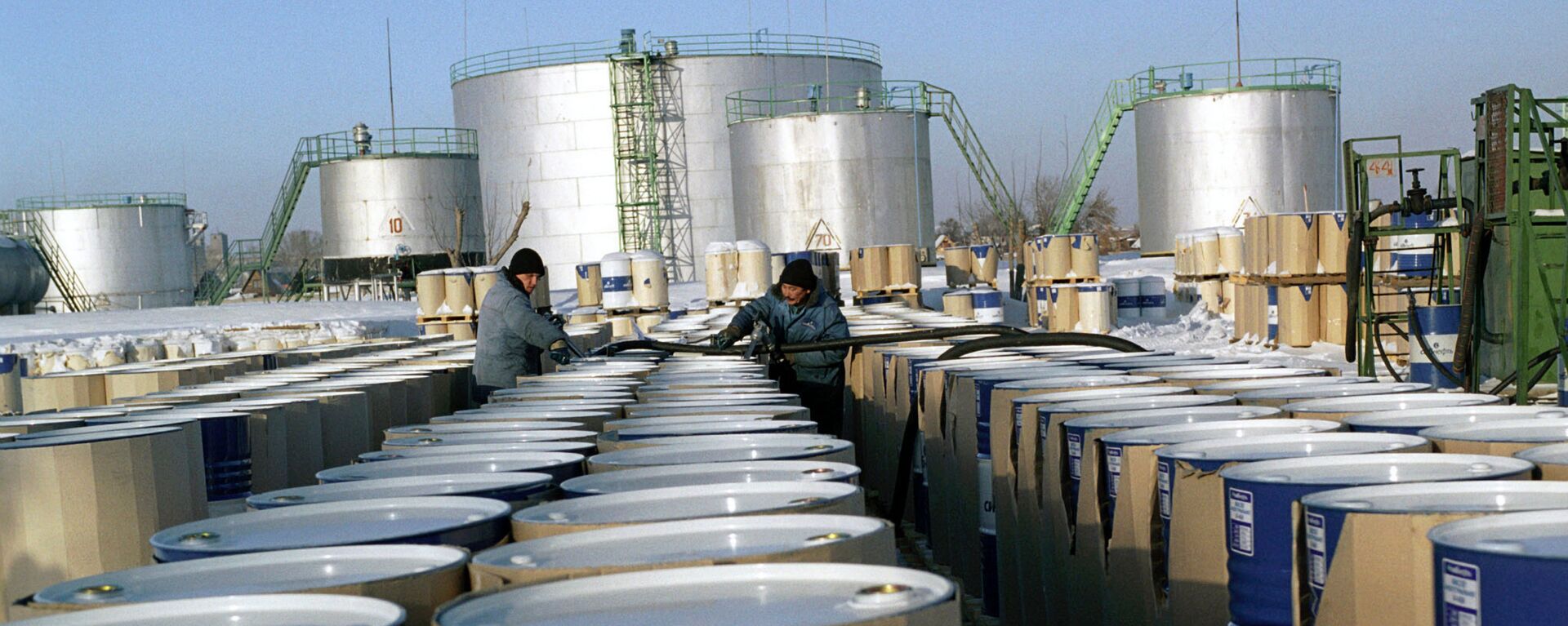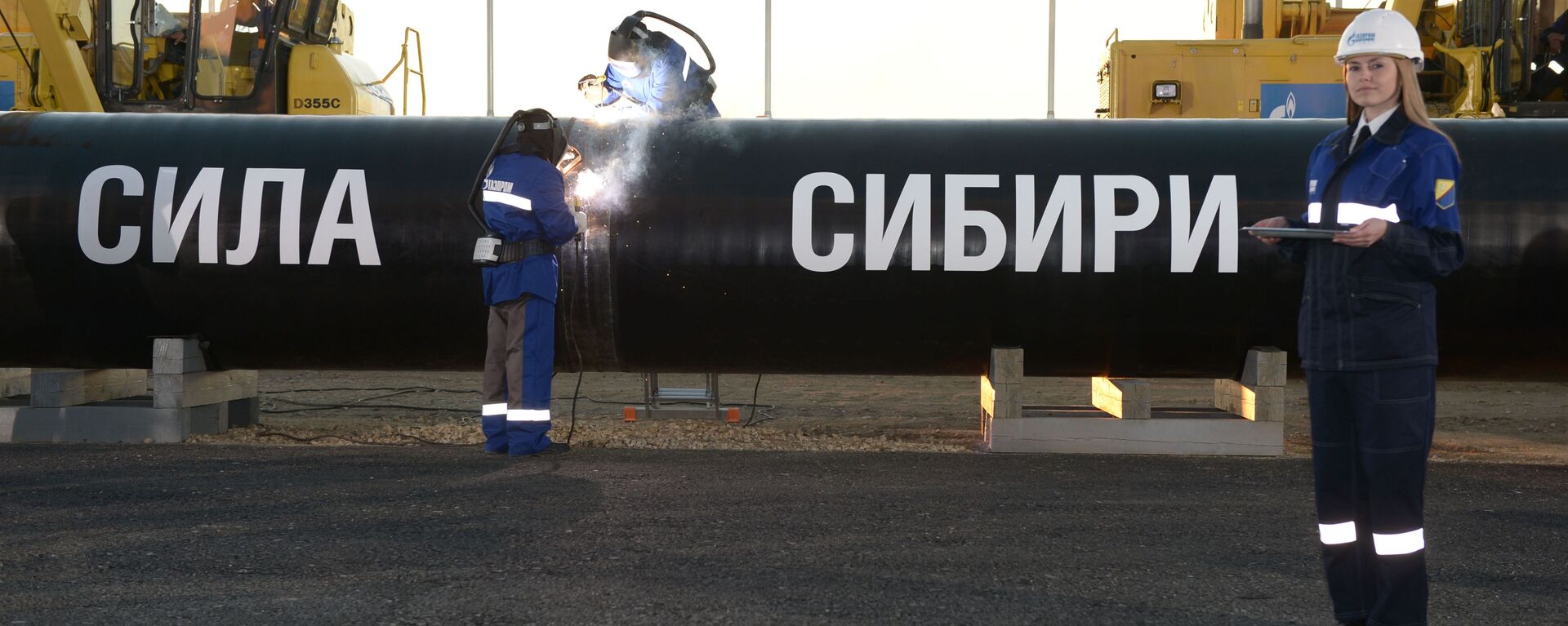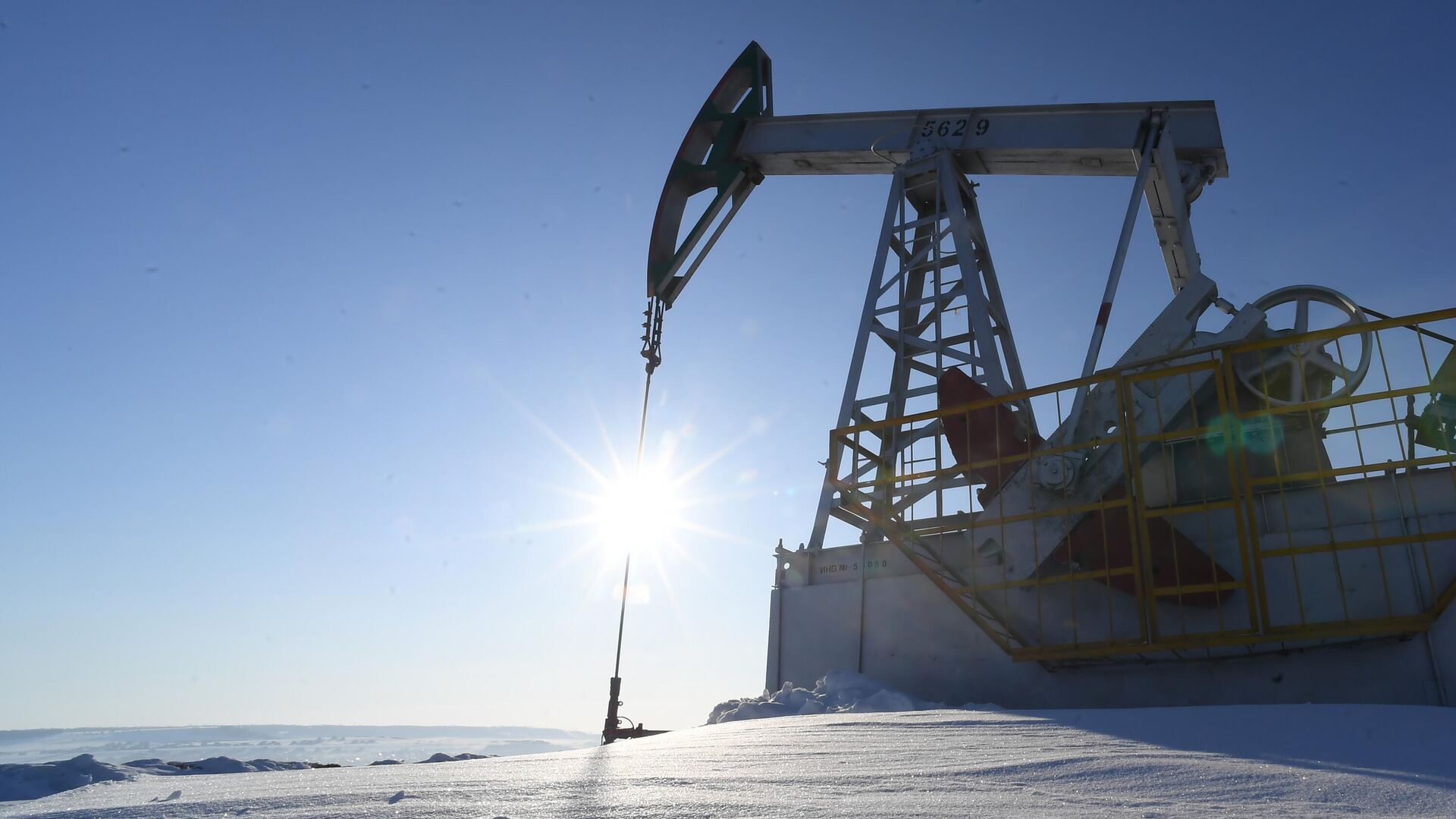https://sputnikglobe.com/20230120/us-reportedly-opposes-calls-by-some-eu-states-to-lower-russia-oil-price-cap--1106517821.html
US Reportedly Opposes Calls by Some EU States to Lower Russia Oil Price Cap
US Reportedly Opposes Calls by Some EU States to Lower Russia Oil Price Cap
Sputnik International
The US administration is reportedly opposing calls by some EU countries to lower Russia oil price cap.
2023-01-20T09:20+0000
2023-01-20T09:20+0000
2023-04-12T17:05+0000
world
us
joe biden
russia
2022 russian oil price cap
brent
urals
oil prices
crude oil
european union (eu)
https://cdn1.img.sputnikglobe.com/img/07e6/0b/0c/1104045331_0:11:2990:1693_1920x0_80_0_0_bf22c45c86f90bbb7c6667c5b51f3518.jpg
The US is reportedly resisting calls from some European countries to lower the price cap on exports of Russian crude still further than the $60 per barrel cost.The price cap on Russian oil, introduced by the Group of Seven (G7) coalition, and joined by the 27-nation European Union (EU) and Australia, went into effect on December 5, coupled with a ban on the country’s seaborne exports. Under this policy, drummed up to strip Russia of at least some of its revenues for hydrocarbons, tankers carrying Russian crude oil are barred from receiving any Western maritime insurance unless the oil is sold below the price cap. The cap will be reviewed every two months to stay at 5% below the International Energy Agency benchmark. Now that the deadline for the first such reevaluation of the cap is approaching, countries like Poland, Estonia and Lithuania have been vociferously demanding that it be lowered from the $60. They pointed to the fact that Russia's Urals brand has been trading below that level recently. At Russia's Baltic Sea port of Primorsk, its medium sour grade, Urals, traded at $45.55 a barrel on January 18, according to Argus Media, with Brent crude standing at close to $85.However, the administration of President Joe Biden is arguing the need to wait until the additional G-7 price caps on Russia's petroleum products like diesel, kerosene and fuel oil are in place in February before reevaluating it, according to sources cited by a US media report.Those brainstorming on the policy in Washington purportedly underscored that the two price caps will interact, and an adjustment to the crude price cap could also affect the refined products. Accordingly, with the US holding out for the time being, the threshold will likely remain at $60, added the report.The issue of the oil price cap has left European countries that went along with the US-spearheaded drive to punish Russia over its special operation in Ukraine struggling to reconcile their eagerness to toe the line with concerns over the fallout fro their own states. Accordingly, Germany has ostensibly warned other EU nations of the need for a timeline for the price reevaluation that would shield volatile markets from further confusion.Sweden’s foreign minister, Tobias Billström, speaking at the World Economic Forum's annual meeting in Davos, Switzerland, warned of the need to take into account the EU’s executive arm's stance on the review of the cap before conclusions are made,”adding that “at least there needs to be a debate on this.”A proposal for a price range for the caps is anticipated in the coming days, added the report, with EU ambassadors to gatehr next week to trade figures and mull specifics.The Kremlin has repeatedly blasted the price cap introduced by Western countries as unacceptable for Russia, underlining that the country will never agree to such destruction of market pricing. Furthermore, Russian President Vladimir Putin approved a decree on special measures in connection with the price cap on Russian oil, prohibiting the delivery of oil and petroleum products if the contracts envisage price limits.Furthermore, Russia is reported to have bolstered its tanker fleet to deliver oil. As early as in May, Russia's Rosneft PJSC and Gazprom Neft PJSC started increasing the bookings of tankers owned by Sovcomflot PJSC, Russia's largest shipping company specializing in the maritime transportation of hydrocarbons.Western mainstream press reported in December that Moscow had acquired an additional 100 vessels, while some media suggested that Russia's oil tanker fleet already amounted to 250 ships. The Russian media hinted that the size of the Russian tanker fleet will be further expanded.To counter the restrictions, Russia also instrumentalized its own insurance companies, including the Russian National Reinsurance Company (RNRC) and IPJSC Ingosstrakh, the country’s fourth-largest general insurer.
https://sputnikglobe.com/20221209/new-master-of-seas-g7-price-cap-vs-russian-oil-fleet-insurance-companies--northern-sea-route-1105271559.html
https://sputnikglobe.com/20230111/wests-oil-price-cap-to-cut-into-russian-revenues-but-not-in-major-way---expert-1106233476.html
https://sputnikglobe.com/20230118/how-russia-diversifies--expands-its-gas-and-oil-supplies-despite-western-pressure-1106453925.html
russia
Sputnik International
feedback@sputniknews.com
+74956456601
MIA „Rossiya Segodnya“
2023
News
en_EN
Sputnik International
feedback@sputniknews.com
+74956456601
MIA „Rossiya Segodnya“
Sputnik International
feedback@sputniknews.com
+74956456601
MIA „Rossiya Segodnya“
the us administration opposingg calls to lower russia oil price cap, below $60 per barrel cost, ban on seaborne oil exports, urals grade, brent, additional g-7 price caps, russia's petroleum products, diesel, kerosene and fuel oil
the us administration opposingg calls to lower russia oil price cap, below $60 per barrel cost, ban on seaborne oil exports, urals grade, brent, additional g-7 price caps, russia's petroleum products, diesel, kerosene and fuel oil
US Reportedly Opposes Calls by Some EU States to Lower Russia Oil Price Cap
09:20 GMT 20.01.2023 (Updated: 17:05 GMT 12.04.2023) G7 nations and the European Union, as well as Australia, imposed a price cap on Russian oil of $60 per barrel as part of their sanctions campaign targeting Moscow. The cap came into effect on December 5, 2022, along with an EU ban on seaborne Russian oil.
The US is reportedly resisting calls from some European countries to lower
the price cap on exports of Russian crude still further than the $60 per barrel cost.
The price cap on Russian oil, introduced by the Group of Seven (G7) coalition, and joined by the 27-nation European Union (EU) and Australia, went into effect on December 5, coupled with a ban on the country’s seaborne exports. Under this policy, drummed up to strip Russia of at least some of its revenues for hydrocarbons, tankers carrying Russian crude oil are barred from receiving any Western maritime insurance unless the oil is sold below the price cap. The cap will be reviewed every two months to stay at 5% below the International Energy Agency benchmark.
Now that the deadline for the first such reevaluation of the cap is approaching, countries like Poland, Estonia and Lithuania have been vociferously demanding that it be lowered from the $60. They pointed to the fact that Russia's Urals brand has been trading below that level recently. At Russia's Baltic Sea port of Primorsk, its medium sour grade, Urals, traded at $45.55 a barrel on January 18, according to
Argus Media, with Brent crude standing at close to $85.
"The cap should be maintained effective as a tool to reduce Russian budget revenues to finance the war," a Lithuanian diplomat was earlier cited as saying.
However, the administration of President Joe Biden is arguing the need to wait until the additional G-7 price caps on Russia's petroleum products like diesel, kerosene and fuel oil are in place in February before reevaluating it, according to sources cited by a US media report.

9 December 2022, 12:30 GMT
Those brainstorming on the policy in Washington purportedly underscored that the two price caps will interact, and an adjustment to the crude price cap could also affect the refined products. Accordingly, with the US holding out for the time being, the threshold will likely remain at $60, added the report.
The issue of the oil price cap has left European countries that went along with the US-spearheaded drive to punish Russia over its special operation in Ukraine struggling to reconcile their eagerness to toe the line with concerns over the fallout fro their own states. Accordingly, Germany has ostensibly warned other EU nations of the need for a timeline for the price reevaluation that would shield volatile markets from further confusion.
Sweden’s foreign minister, Tobias Billström, speaking at
the World Economic Forum's annual meeting in Davos, Switzerland, warned of the need to take into account the EU’s executive arm's stance on the review of the cap before conclusions are made,”adding that “at least there needs to be a debate on this.”
A proposal for a price range for the caps is anticipated in the coming days, added the report, with EU ambassadors to gatehr next week to trade figures and mull specifics.

11 January 2023, 20:05 GMT
The Kremlin has repeatedly
blasted the price cap introduced by Western countries as unacceptable for Russia, underlining that the country will never agree to such destruction of market pricing. Furthermore, Russian President Vladimir Putin approved a decree on special measures in connection with the price cap on Russian oil, prohibiting the delivery of oil and petroleum products if the contracts envisage price limits.

18 January 2023, 15:12 GMT
Furthermore, Russia is reported to have
bolstered its tanker fleet to deliver oil. As early as in May, Russia's Rosneft PJSC and Gazprom Neft PJSC started increasing the bookings of tankers owned by Sovcomflot PJSC, Russia's largest shipping company specializing in the maritime transportation of hydrocarbons.
Western mainstream press reported in December that Moscow had acquired an additional 100 vessels, while some media suggested that Russia's oil tanker fleet already amounted to 250 ships. The Russian media hinted that the size of the Russian tanker fleet will be further expanded.
To counter the restrictions, Russia also instrumentalized its own insurance companies, including the Russian National Reinsurance Company (RNRC) and IPJSC Ingosstrakh, the country’s fourth-largest general insurer.





